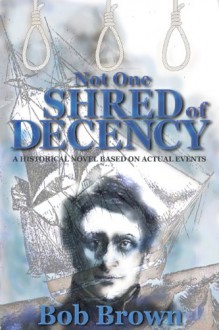Shortly before eight bells on a bone-cold December night in 1842, the USN Somers quietly cut its way through the fog as it entered New York Harbor. Almost before the anchor touched the sandy bottom, rumors of mutiny, bloodshed, and massive hangings began rippling across the nation. One man hanged...
show more
Shortly before eight bells on a bone-cold December night in 1842, the USN Somers quietly cut its way through the fog as it entered New York Harbor. Almost before the anchor touched the sandy bottom, rumors of mutiny, bloodshed, and massive hangings began rippling across the nation. One man hanged from the yardarm was Midshipman Philip Spencer, the son of Secretary of War John Spencer, an influential member of President John Tyler’s cabinet. The harrowing days on the high seas were no more tumultuous than the national controversy sparked by the questionable behavior of Captain Alexander Mackenzie. That he had ordered the mutineers hung without any opportunity to defend themselves rankled the sense of justice for many Americans. However, just as many other citizens praised Captain Mackenzie as a hero who saved the ship and crew from torture and death. Enraged over his son’s death, Secretary Spencer was instrumental in having Captain Mackenzie court-martialed on murder charges. The Captain’s arrogant attitude and devious defense during the trial energized his supporters and infuriated his detractors.
show less

